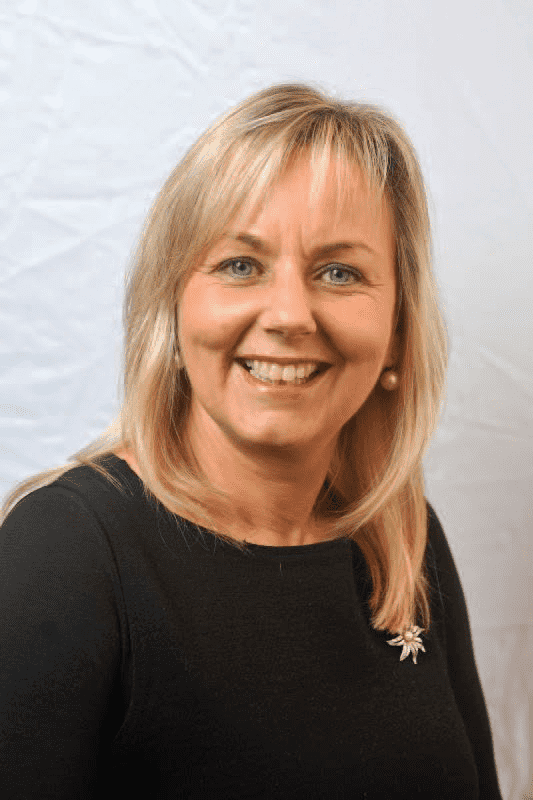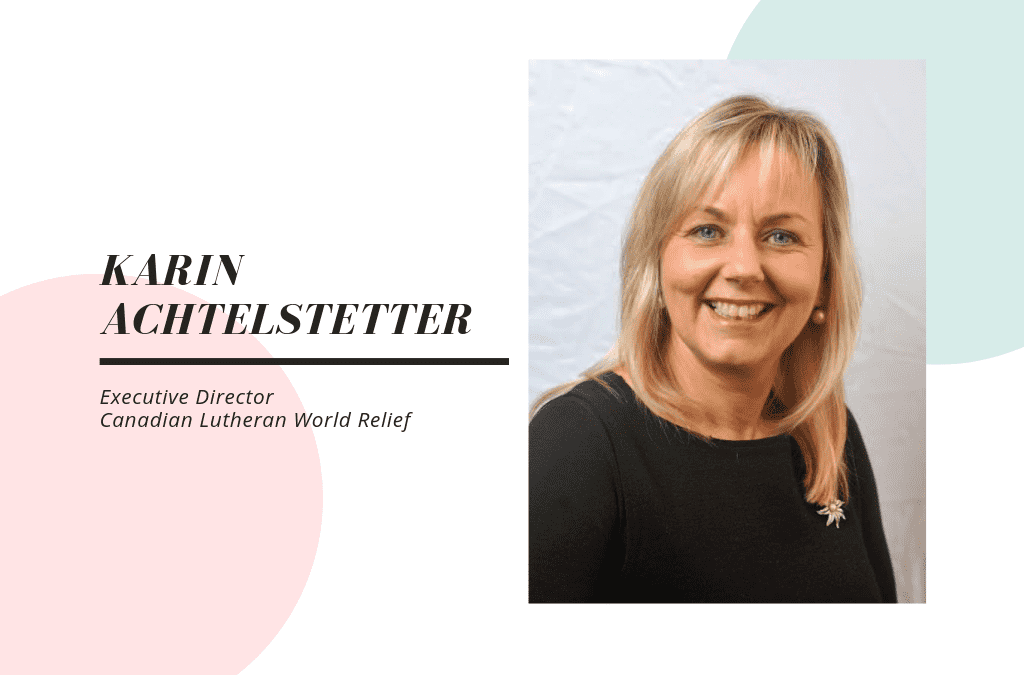Interview with Rev. Dr. Karin Achtelstetter, Executive Director of CLWR
As we commemorated World Humanitarian Day just a few days ago, we wanted to profile one of our members who has had a long experience working in humanitarian assistance around the world. In this edition of Spotlight on our Members, we spoke with Rev. Dr. Karin Achtelstetter to learn more about the work of Canadian Lutheran World Relief.
CCIC: What do you think other organizations can learn from CLWR’s work?
Karin Achtelstetter: Next year is our 75th year responding to disaster, conflict and injustice around the world, and we’ve learned a lot in that time. But I think the most important thing isn’t what we’ve already learned—it’s that we’re still learning. That posture is critically important in our sector.
I’m proud that we’re continuing to grow as we learn from the local organizations we partner with around the world, as we learn from the people our projects serve, and as we learn from our colleagues in this work through networks like CCIC. One of the ways that learning has shaped us the most is in the way we respond to the global refugee crisis – everything from emergency humanitarian assistance to long-term development support to refugee resettlement in Canada.
CCIC: Since World Humanitarian Day was only a few days ago, could you share how CLWR works to address the humanitarian-development nexus and to address both short-term needs as well as long-term sustainable development?
KA: Our story as an organization begins with displacement, with help given to refugees of war back in 1946, and we’ve grown to an organization that focuses on a holistic response to displacement, forced migration, and food insecurity.
Much of our humanitarian assistance work around the world continues to focus on internally displaced people (IDPs) and refugees in places like Ethiopia, Uganda, DRC, South Sudan, Jordan, and Myanmar. Approaching this work from a human rights-based perspective means that we must not only pay attention to meeting short-term needs, but also address the ongoing barriers to advancing human rights and improving quality of life.
So, in a place like Myanmar where so many Rohingya have been displaced, we’re working with women and girls in IDP camps to provide basic language, literacy and leadership skills so that they can take a more active role in community decision-making processes and accessing services. With a view to the future, these skills will also prepare them for future resettlement as it will allow for increased interactions with their ethnic Rakhine neighbours.
“Approaching this work from a human rights-based perspective means that we must not only pay attention to meeting short-term needs, but also address the ongoing barriers to advancing human rights and improving quality of life.”
CCIC: CLWR have designated young adult board members. How do you perceive the role of young people in your work and how has your board been influenced by those young adult members?
KA: Young people aren’t just the future of our work – they’re our present. We’re so proud that as our founding generation passes the torch, there are so many young Canadians who are so committed to challenging injustice.
Youth engagement can’t just be a way to try to convince young people to donate, because they want and deserve more than that. We need their perspectives and we need them to challenge us as an organization to be the best we can. Their voice is so valuable, so a board without young adult board members is unthinkable for CLWR. Young adult board members very often bring new perspectives to critical discussions about our work and future, and they make sure we’re linked to their communities and hearing those voices we need.
CCIC: We are proud to have CLWR among our membership. What does CLWR value about its membership with CCIC and how would you like to see this relationship grow in the future?
KA: CLWR really values its engagement in various CCIC working groups including the Food Security Policy Group, the Humanitarian Response Network, and the Humanitarian Policy and Advocacy Group. Having the chance to network, learn, and advocate with other CCIC members on relevant issues strengthens our ability to carry out our mission and provide quality programming. As a primarily Winnipeg based organization, we are excited by CCIC’s recent efforts to provide more opportunities to members outside of Ottawa/Toronto and would like to see this continue to grow.
“Young people aren’t just the future of our work – they’re our present. We’re so proud that as our founding generation passes the torch, there are so many young Canadians who are so committed to challenging injustice.”

Rev. Dr. Karin Achtelstetter
Executive Director of Canadian Lutheran World Relief
Rev. Dr. Karin Achtelstetter is Executive Director of Canadian Lutheran World Relief.
Prior to CLWR, she was the General Secretary of the World Association for Christian Communication. She also has extensive experience working with CLWR partners including The Lutheran World Federation, ACT Alliance and the World Council of Churches.
As an ordained Lutheran pastor and through her years of executive leadership experience, she has firsthand experience working with churches, grassroots communities and project partners around the world.
In her work with CLWR, Karin champions a focus on empowering girls and women throughout CLWR’s programming.

